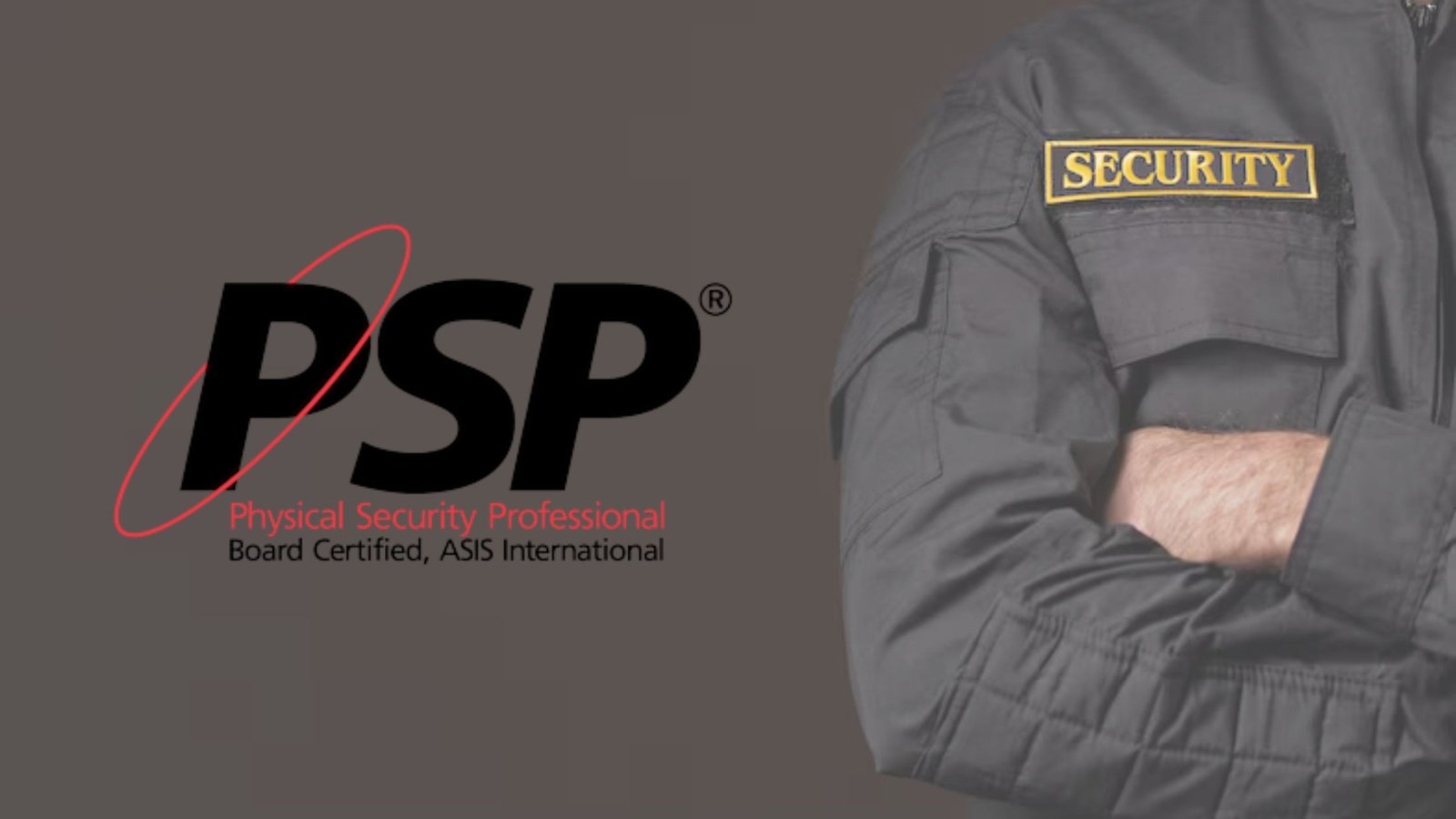The PSP Certification—short for Physical Security Professional—is a globally recognized credential awarded by ASIS International. It is designed for security professionals who specialize in threat analysis, integrated physical security systems, and security measures implementation. For those looking to advance their careers in corporate or governmental security roles, achieving this certification can be a game-changer.
What is the PSP Certification?
The PSP Certification validates your knowledge and expertise in physical security assessments, application and integration of physical security systems, and implementation of security measures. The certification is administered by ASIS International, a leading global organization for security professionals.
The certification is meant for mid-to-senior-level security professionals who are involved in:
-
Conducting threat and risk assessments
-
Designing security systems and measures
-
Implementing integrated security strategies
-
Managing the physical security function of an organization
Being PSP certified indicates to employers and clients that you have a solid understanding of core physical security principles and can apply them effectively in real-world situations.
Who Should Pursue PSP Certification?
If you’re a professional involved in designing or managing physical security systems, the PSP Certification could be ideal for you. Common job titles of PSP candidates include:
-
Security Manager
-
Physical Security Consultant
-
Risk Analyst
-
Facilities Security Officer (FSO)
-
Security Systems Integrator
-
Law Enforcement Personnel transitioning to private security
Whether you’re looking to advance in your current role or transition into a specialized security function, this certification enhances your credibility and boosts your earning potential.
PSP Certification Eligibility Requirements
Before you can sit for the PSP exam, you need to meet certain eligibility criteria. As of the latest ASIS guidelines, the requirements include:
-
Education:
-
A high school diploma or equivalent (for U.S. applicants) or international equivalent.
-
-
Experience:
-
At least six years of progressive experience in physical security (with a high school diploma), or
-
At least four years of experience with a bachelor’s degree or higher
-
-
No Criminal Convictions:
-
Candidates must not have any felony convictions or significant criminal history.
-
These prerequisites ensure that candidates have sufficient practical experience to understand and apply physical security principles.
Exam Structure and Topics
The PSP exam is a two-and-a-half-hour test consisting of 140 multiple-choice questions, of which 125 are scored and 15 are pre-test questions used for future exams.
The exam covers three primary domains:
-
Physical Security Assessment (31%)
-
Identify threats and vulnerabilities
-
Conduct risk assessments
-
Evaluate existing security measures
-
-
Application, Design, and Integration of Physical Security Systems (34%)
-
System design considerations
-
System integration techniques
-
Understanding electronic security components
-
-
Implementation of Physical Security Measures (35%)
-
Security project management
-
Procedural and policy considerations
-
Emergency response planning
-
It is crucial to understand these domains in depth and how they apply to real-world scenarios.
How to Prepare for the PSP Certification Exam
Success in the PSP exam largely depends on preparation. Here are some key tips to help you study effectively:
1. Use Official ASIS Materials
ASIS offers a PSP Study Guide and a series of reference materials. These include:
-
Protection of Assets (POA): A foundational resource
-
PSP Reference Set: A collection of books aligned with the exam domains
2. Join Study Groups
Look for PSP prep groups on LinkedIn, Reddit, or ASIS community forums. Peer learning can help you fill gaps in your understanding and stay motivated.
3. Practice Exams
Taking practice exams is one of the best ways to prepare. They simulate the actual testing environment and highlight areas that need improvement.
4. Enroll in a Prep Course
Consider enrolling in instructor-led training, either in-person or online. Some institutions and private tutors offer dedicated courses tailored to the PSP Certification.
5. Time Management
Create a study schedule that allows you to cover all three domains over several weeks or months. Don’t cram—consistent, focused study is more effective.
Benefits of Earning the PSP Certification
Earning the PSP Certification offers a range of professional advantages:
1. Career Advancement
Professionals with PSP credentials often qualify for senior security roles that require demonstrated expertise in physical security systems and threat management.
2. Higher Salary Potential
According to industry surveys, certified professionals generally earn more than their non-certified peers. The PSP credential is a signal to employers of your value and competence.
3. Professional Recognition
PSP holders gain recognition from peers, clients, and employers as trusted experts in the field. This can lead to speaking opportunities, consulting work, and leadership positions.
4. Global Relevance
The certification is recognized internationally, making it valuable whether you work in North America, the Middle East, Europe, or Asia-Pacific regions.
Common Challenges and How to Overcome Them
Many candidates find the PSP exam challenging due to the breadth of material and the complexity of the questions. Here’s how you can address some common hurdles:
-
Overwhelming Content: Break it down by domain and study one area at a time.
-
Lack of Time: Commit at least 30-60 minutes a day and increase intensity closer to exam time.
-
Test Anxiety: Use practice exams to build confidence and become familiar with the format.
How to Apply and Maintain Certification
You can apply for the exam through the ASIS International website. Once your eligibility is confirmed, you’ll schedule the exam at a testing center or online.
To maintain your PSP Certification, you must earn 60 continuing professional education (CPE) credits every three years. These can be earned through:
-
Attending conferences
-
Publishing articles
-
Taking security-related courses
-
Volunteering in the security community
Conclusion
Achieving the PSP Certification is a major milestone for any physical security professional. It not only validates your expertise but also opens doors to career advancement and international opportunities. Whether you’re a seasoned security manager or a rising professional in the field, the PSP designation enhances your credibility, boosts your income potential, and prepares you to tackle complex security challenges.

Leave a Reply